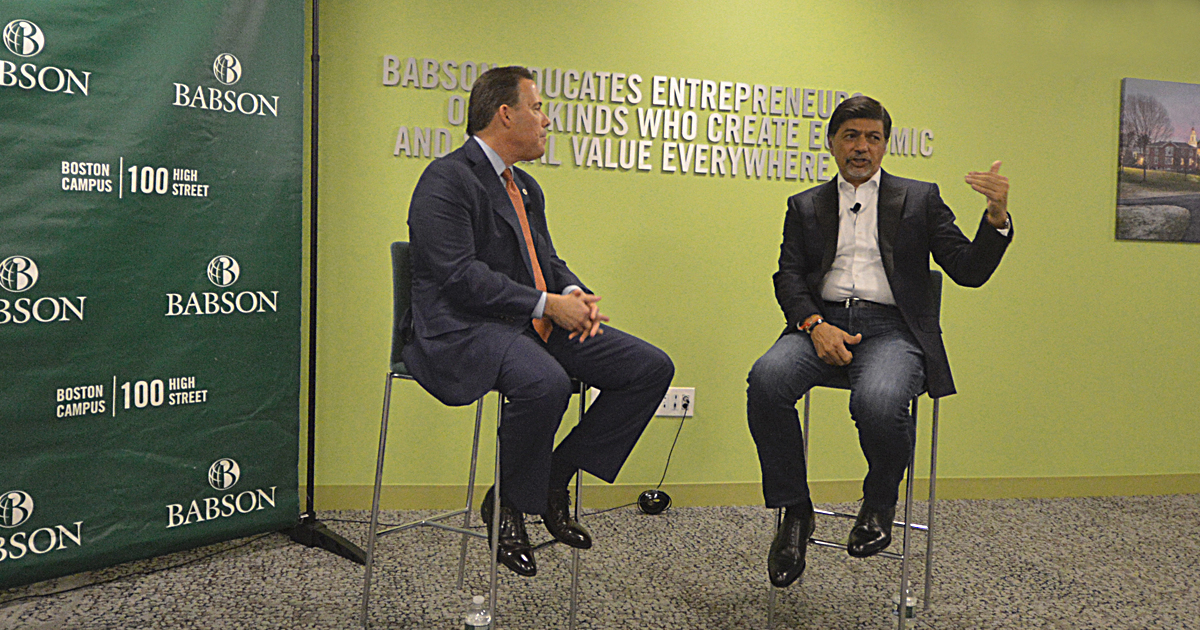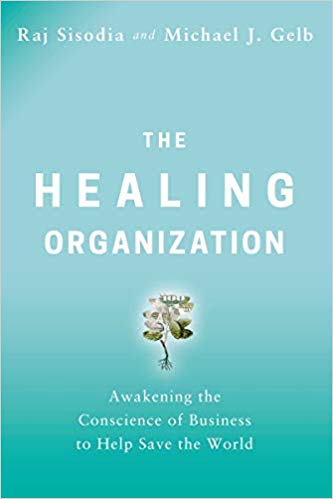The Healing Organization

The business world has, to date, been shaped by a focus on profits over people and the environment.
This approach, says Professor Raj Sisodia, is no longer viable, and its effects are detrimental.
Finding a Solution
“Who doesn’t feel the need for healing at some level?” asked Sisodia. “I came to believe that ultimately, that is the purpose of business. We’re all put on earth to care for each other.” He believes business is a way for us to do so.
Co-founder of Conscious Capitalism, Sisodia has spent nearly 20 years shifting his mindset from business and its wrongdoings, to business and its potential to do good.
“(In the early 2000s), I didn’t have passion. I didn’t have purpose,” he shared. “Out of that frustration was born a lot of questions.”
In the United States, “we were spending $1 trillion on marketing … that was the GDP of India at the time. What are we doing with all of this money and what impact is it having?” he asked.
His questions soon turned to action, and a passion worth pursuing. “I found me,” he shared, talking about the launch of the Conscious Capitalism movement. Until then, he said, no job had ever brought him so much joy.
Built on the philosophy that, when practiced consciously, business elevates humanity, Conscious Capitalism is believed to create a better world.
And so, Sisodia continues to promote Conscious Capitalism as the only way to do business, and has started a new dialogue that now connects business with healing.
The Culmination of a Journey
 This dialogue comes in the form of a new book, co-authored by Sisodia and organizational innovation expert, Michael J. Gelb.
This dialogue comes in the form of a new book, co-authored by Sisodia and organizational innovation expert, Michael J. Gelb.
Uniquely named The Healing Organization, the book was inspired by “an epidemic of unnecessary suffering connected with business,” and paints an all too true picture of environmental issues, an increasing number of people living paycheck to paycheck, and higher rates of depression, stress, and chronic health problems with direct ties to the workplace.
At a recent Babson Boston event, Sisodia sat down with Eastern Bank CEO Bob Rivers to discuss the book and what it means for large corporations to put people first.
Creating a New Corporate Norm
“You were really intentional with the word ‘healing,’ ” said Rivers. “In the realm of business, that is not a term you really ever hear.”
In The Healing Organization, in-depth interviews and case studies reveal how companies such as Shake Shack, Hyatt, KIND Healthy Snacks, and others are ‘healing’ their employees, customers, communities, and other stakeholders. Besides being profitable, these organizations all have the following key elements in common:
- Their employees love coming to work
- They have passionately loyal customers
- They make a significant positive difference in the communities they serve
- They preserve and restore the ecosystems in which they operate
At the Babson Boston event, Sisodia focused on how happy and engaged employees, both in their personal and professional lives, in turn create a snowball of positive effects across the remaining elements—loyal customers, communities served, and a restored ecosystem. A bonus is the success and profits that often follow.
“It’s thought in this country that you have to be professional and stoic … people walk around with enormous burdens. There is enormous suffering and a lot of it is silent and hidden. … What we found is that life is hard enough and full of challenges … we come to work and (more often than not) we make it worse.”
You don’t have to allow this to happen to make money, advised Sisodia. “Companies that follow (Conscious Capitalism) have happier customers. They also outperform the market 10 to 1.”



